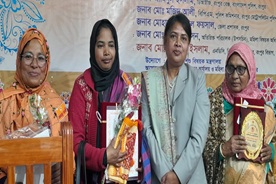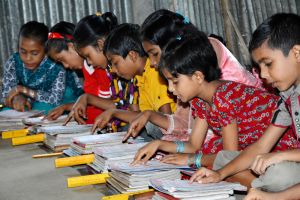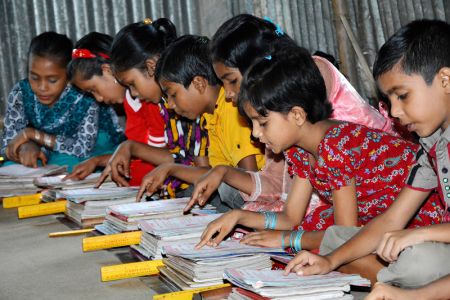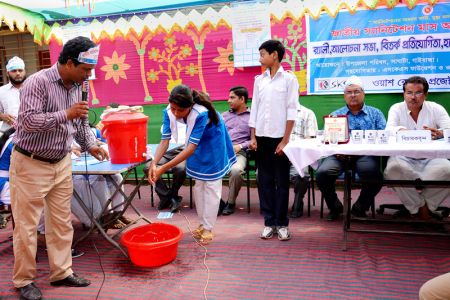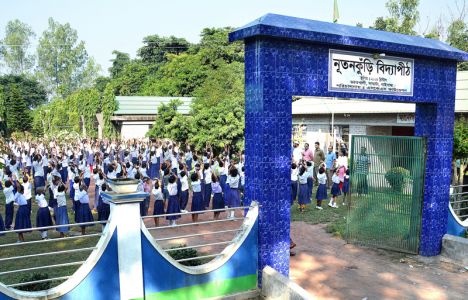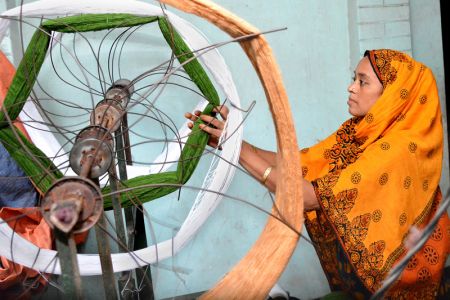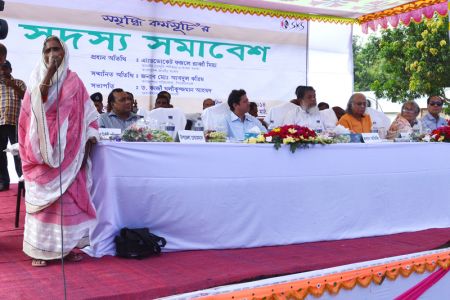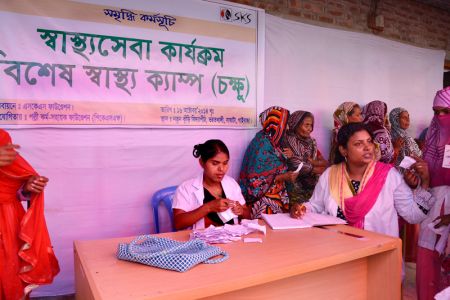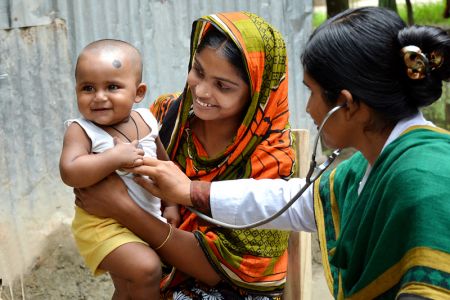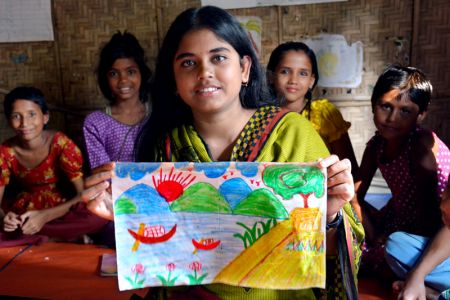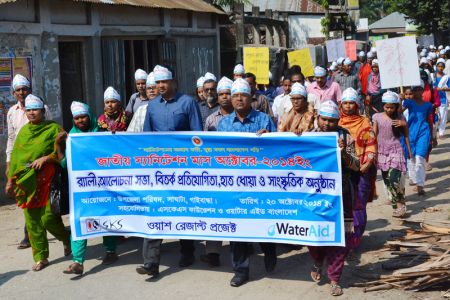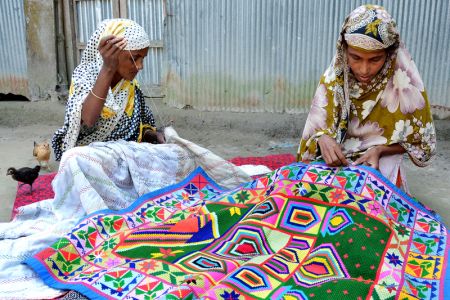Strategy:
Rural people of Bangladesh suffer from multi-dimensional health hazards due to ignorance, malnutrition and lack of available services within their reach. Being attached to boarder of India, people of SKS working area always at risk of STD. SKS will always try to establish link people with the existing health facilities /services as first strategy to avoid duplication of services and make the existing services accountable and effectively operational. SKS feels that lack of awareness is the main reason of bad health and hygiene practices in the poorer communities. Thus the second strategy will be to educate people on health and hygiene practices. This will reduce health hazard and save their hard earning money. Scarcity of qualified health professional is common in all over rural Bangladesh. Qualified doctors prefer to do practice in the urban area for easy earning. SKS will provide extensive training to the local unqualified village doctors and pharmacists on the treatment of common diseases and referral system to make them capable to provide necessary health services in the rural areas. Herbal treatment is still in practice in many countries. People of rural areas took herbal treatment while no other treatment was available in the past. On the other hand government is also promoting herbal treatment by providing herbal treatment in the district and Upazila health facilities. SKS will promote herbal treatment by providing training on herbal treatment to the local health practitioners. As the last strategy SKS will provide limited essential health services at the door step through satellite and static clinic within affordable cost for the poor.
Objective:
Improving peoples’ health & nutrition status and local primary health care system.
Major activities:
- Awareness building of the people on health and nutrition i.e. improving Knowledge-Attitude – Practice.
- Support the smooth flow of information from public health care system to the grassroots.
- Introduce low cost sanitary latrine and other technology that ensure safe hygiene practices
- Improve peoples’ knowledge of nutrition
- Provide supplementary food on nutrition
- Run satellite clinic in the working area
- Organize training for the local health service providers (village doctor, pharmacists)
- Facilitate to establish medicine shops in the remote area.
- Facilitate people to ensure health services from the public facilities
- Render health care services for the mother, child and old age people
- Motivate and advocate qualified doctors to render services to the poor in the remote locations
- Awareness creation and services to the adolescent girls and boys on reproductive health
- Motivate people to avail FP services and ensure contraceptives within the reach of the poor people.
- Take initiative to activate the Community clinic
- Provide health services to the people with disability and disadvantaged Adivasis.
- Establish information cell at the field level for the poor people
- Orient and promote herbal treatment for common diseases
- Introduce Community Led Total Sanitation (CLTS) for sustainable health practices
- Support people with arsenic test of the water point.
- Provide direct health services to the poor people with minimum cost by establishing static clinic.

